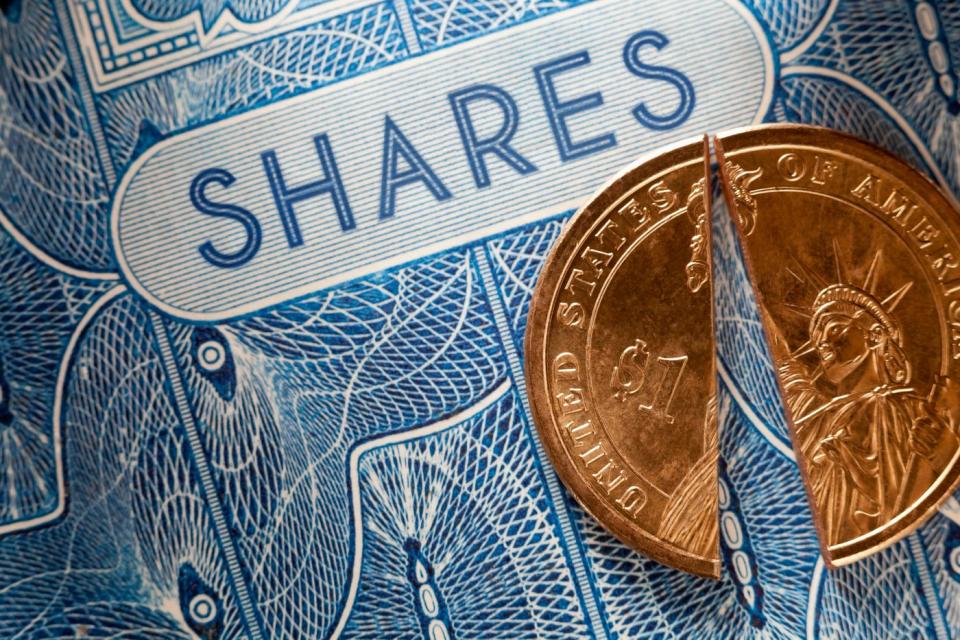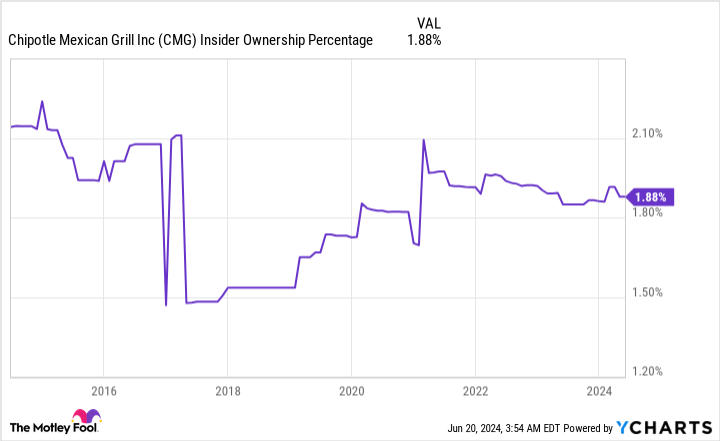If there’s one thing Wall Street doesn’t lack, it’s data. Between earnings season and monthly economic data releases, it can be easy for investors to get overwhelmed and miss something important.
Roughly five weeks ago, during the heart of earnings season, what’s arguably the most important data release of the quarter occurred. I’m talking about the May 15 deadline for institutions to file Form 13F with the Securities and Exchange Commission. A 13F offers investors an under-the-hood look at what Wall Street’s smartest and most-successful money managers bought and sold in the latest quarter (in this instance, the quarter ending March 31).
As you can imagine, investors tend to pay the closest attention to what Wall Street’s brightest billionaire investors are doing. This includes Pershing Square Capital Management’s Bill Ackman, who oversees more than $10 billion of invested assets for his fund.


Unlike most billionaire investors, who oversee investments in dozens or hundreds of stocks, Ackman has historically run a tightly knit portfolio of a half-dozen to one-dozen holdings. He puts his fund’s capital to work in businesses he believes are undervalued, and usually builds a large enough stake to earn board seats and/or influence the strategic direction of the companies he’s betting on. In many ways, Ackman can be considered an activist investor.
As of March 31, Pershing Square Capital Management had stakes in six companies and seven securities (Ackman’s fund owns both classes of Alphabet‘s stock). But the most-surprising move of the first quarter is Ackman selling nearly 10% of Pershing Square’s stake in its largest (20.1% of invested assets) and longest-held position: Chipotle Mexican Grill (NYSE: CMG).
This sizzling stock-split stock is on deck
The 81,014 shares Ackman’s fund sold of fast-casual restaurant chain Chipotle during the March-ended quarter reduced Pershing Square’s remaining stake to 743,984 shares. Based on Chipotle’s nearly $3,428 closing price on June 18, this position is currently worth a whopping $2.55 billion.
Chipotle Mexican Grill’s stock has been doing so well that, on March 19, its board announced its first-ever stock split. A “stock split” is an event that allows a publicly traded company to alter its share price and outstanding share count without impacting its market cap or operating performance. In Chipotle’s case, it’s conducting a 50-for-1 forward-stock split, which will increase its share count by a factor of 50 and reduce its share price to 1/50th of its value the day it goes into effect (after the closing bell on June 25).
Next to artificial intelligence (AI) colossus Nvidia, which completed a 10-for-1 stock split on June 7, Chipotle is one of the most-anticipated and hottest stock-split stocks on Wall Street.
The more than 15,000% increase in shares of Chipotle since pricing its initial public offering at $22 in January 2006 is primarily the result of management understanding its customer base, keeping things simple, and allowing its innovation to do the talking.
With no freezers in its restaurants, Chipotle has stuck to its promise of prepping its food daily, using only responsibly raised meats, and sourcing its vegetables locally, when it makes financial sense to do so. Just as grocery stores capitalized on organic food demand in the 2000s, Chipotle’s management team has realized that consumers will pay a premium for higher-quality food.
The company’s menu has also remained rather small throughout the years. Limiting the menu is done on purpose to ensure quick meal preparation and shorten wait times in the company’s restaurants.
The final piece of the puzzle has been Chipotle’s innovation. While there’s only so much that can be done with food-based innovation, the company began leaning on mobile order-dedicated drive-thru lanes (known as “Chipotlanes”) in 2018. These Chipotlanes became a key source of revenue that propelled the company’s growth during the COVID-19 pandemic.


The three probable reasons Ackman is selling shares of Chipotle
What’s compelled one of Wall Street’s most-successful billionaire investors to dump nearly 10% of their stake in Chipotle?
To begin with, Bill Ackman and his investment team might simply be locking in some gains after a phenomenal run for their top holding. Since the start of the third quarter of 2016, shares of Chipotle have returned 770%. Although we don’t know exactly what Pershing Square’s cost basis is in Chipotle Mexican Grill, Ackman’s fund appears to be sitting on an unrealized gain of more than $2 billion.
You might recall that Warren Buffett recently pared down Berkshire Hathaway‘s stake in Apple with the reasoning that tax rates are liable to rise in the future. It’s possible that Ackman shares a similar view and wanted to lock in a bit of profit. This type of selling is relatively benign.
A second reason Ackman may have sent 81,014 shares of Chipotle Mexican Grill to the chopping block is the lack of insider ownership and buying activity. Insiders own a very small percentage of outstanding shares, and the vast majority of insider transactions involve the exercising of options and the selling of shares. If insiders aren’t willing to buy shares of their own company’s stock, why should you?
The caveat to this point is that insider selling isn’t always bad news. For instance, executing options and selling to cover a tax bill isn’t a red flag for investors. Nevertheless, there’s only one reason insiders buy — they believe the price of the underlying shares will increase — and there’s been virtually no insider buying activity to speak of in Chipotle.
However, the biggest red flag is Chipotle Mexican Grill’s valuation. A fast-casual restaurant chain shouldn’t be trading at respective multiples of 62 times and 51 times forecast earnings for the current and upcoming year.
Although optimists are quick to point to Chipotle’s sustained double-digit sales growth, it’s important to recognize that roughly half of this growth comes from opening new stores. During the first quarter, Chipotle’s organic growth rate from its existing stores clocked in at 7%. While this is a fantastic organic growth rate for a chain as large as Chipotle, it’s all the evidence we need that a forward-year earnings multiple of 51 isn’t warranted.
Even if Chipotle continues to outperform other fast-casual restaurant chains in the operating department, the company’s stock-split euphoria isn’t going to last. In other words, following Ackman’s lead and paring down your stake in Chipotle may be the smart move.
Should you invest $1,000 in Chipotle Mexican Grill right now?
Before you buy stock in Chipotle Mexican Grill, consider this:
The Motley Fool Stock Advisor analyst team just identified what they believe are the 10 best stocks for investors to buy now… and Chipotle Mexican Grill wasn’t one of them. The 10 stocks that made the cut could produce monster returns in the coming years.
Consider when Nvidia made this list on April 15, 2005… if you invested $1,000 at the time of our recommendation, you’d have $830,777!*
Stock Advisor provides investors with an easy-to-follow blueprint for success, including guidance on building a portfolio, regular updates from analysts, and two new stock picks each month. The Stock Advisor service has more than quadrupled the return of S&P 500 since 2002*.
*Stock Advisor returns as of June 10, 2024
Suzanne Frey, an executive at Alphabet, is a member of The Motley Fool’s board of directors. Sean Williams has positions in Alphabet. The Motley Fool has positions in and recommends Alphabet, Apple, Berkshire Hathaway, Chipotle Mexican Grill, and Nvidia. The Motley Fool has a disclosure policy.
Billionaire Bill Ackman Is Selling Shares of 1 of Wall Street’s Hottest Stock-Split Stocks. Should You Follow Suit? was originally published by The Motley Fool
















